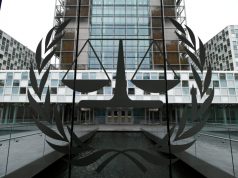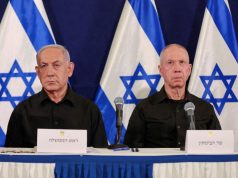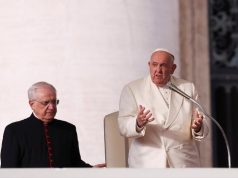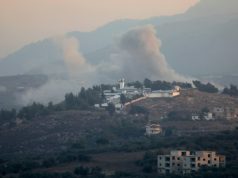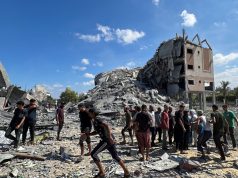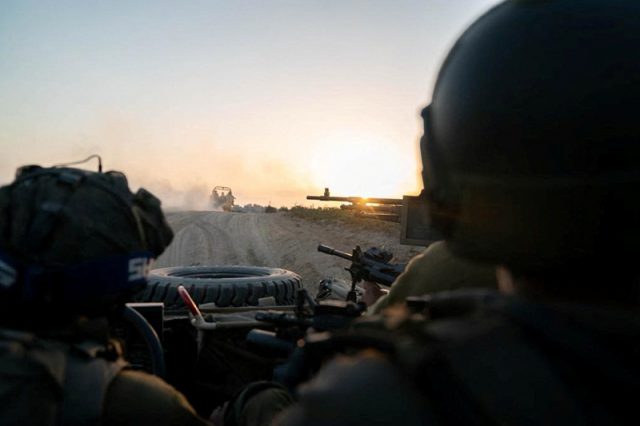
- At least 23 Palestinians were killed in two separate Israeli air strikes early on Tuesday in the southern Gaza cities of Khan Younis and Rafah, health officials said.
- The Israeli military said on Tuesday it took control of a Hamas military stronghold in the northern Gaza Strip, where it said the forces located anti-tank missiles and launchers, weapons and various intelligence materials.
GAZA/JERUSALEM — Prime Minister Benjamin Netanyahu said Israel would consider “tactical little pauses” in fighting in the Gaza Strip to let hostages leave or aid get through, but again rejected calls for a ceasefire despite international pressure.
Having encircled densely populated Gaza City in the north of the enclave, where the Hamas Islamist group is based, Israel‘s military said it had taken a militant compound and was set to attack fighters hiding in a warren of underground tunnels.
At least 23 Palestinians were killed in two separate Israeli air strikes early on Tuesday in the southern Gaza cities of Khan Younis and Rafah, health officials said.
In Khan Younis, a man rescued from the rubble of a house where Palestinian health officials said 11 people had been killed warned that Israel would be “taught a very tough lesson”.
“This is the bravery of the so-called Israel, they show their might and power against civilians, babies inside, kids inside, and elderly,” the man, who gave his name as Ahmed Ayesh, told reporters.
Israel has bombarded the enclave since the Hamas raid on southern Israel one month ago, when its fighters killed 1,400 people and seized 240 hostages.
Gaza health officials say the Israeli assault has killed more than 10,000 Palestinians, including some 4,100 children.
Both Israel and Hamas have rebuffed mounting calls for a halt in fighting. Israel says hostages should be released first. Hamas says it will not free them nor stop fighting while Gaza is under attack.
Netanyahu said a general ceasefire would hamper his country’s war effort, but pausing fighting for humanitarian reasons, an idea supported by Israel‘s top ally the United States, would continue to be considered based on circumstances.
“As far as tactical little pauses – an hour here, an hour there – we’ve had them before. I suppose we’ll check the circumstances in order to enable goods, humanitarian goods to come in, or our hostages, individual hostages, to leave,” Netanyahu told ABC News on Monday.
“But I don’t think there’s going to be a general ceasefire.”
U.S. President Joe Biden discussed such pauses and possible hostage releases in a phone call with Netanyahu on Monday, reiterating his support for Israel while emphasising that it must protect civilians, the White House said.
Like Israel, the U.S. fears Hamas would take advantage of a full ceasefire to regroup.
Calling for an urgent ceasefire, U.N. Secretary General Antonio Guterres warned on Monday that Gaza is becoming a “graveyard for children“.
“Ground operations by the Israel Defense Forces and continued bombardment are hitting civilians, hospitals, refugee camps, mosques, churches and U.N. facilities – including shelters. No one is safe,” Guterres told reporters.
“At the same time, Hamas and other militants use civilians as human shields and continue to launch rockets indiscriminately towards Israel,” he said.
International organizations have said hospitals cannot cope with the wounded and food and clean water are running out with aid deliveries nowhere near enough.
“We need an immediate humanitarian ceasefire. It’s been 30 days. Enough is enough. This must stop now,” said a statement from the heads of several United Nations’ bodies on Monday.
The Israeli military said on Tuesday it took control of a Hamas military stronghold in the northern Gaza Strip, where it said the forces located anti-tank missiles and launchers, weapons and various intelligence materials.
Israeli aircraft struck several Hamas militants who had barricaded themselves in a building near the al-Quds Hospital and planned to launch an attack on Israeli forces, it said.
Gaza City cut off
The Israeli military on Monday released video of tanks moving through bombed-out streets and groups of troops moving on foot. It says it has surrounded Gaza City, cutting off northern parts of the narrow coastal strip from the south.
In a press briefing, chief military spokesperson Rear Admiral Daniel Hagari said troops were hunting Hamas field level commanders to weaken the militants’ ability “to carry out counter attacks.”
The U.N. Security Council met behind closed doors on Monday. The 15-member body is still trying to agree a resolution after failing four times in two weeks to take action. Diplomats said a key obstacle is whether to call for a ceasefire, cessation of hostilities or humanitarian pauses to allow aid access in Gaza.
At a meeting of foreign ministers from the G7 leading democracies in Tokyo, Japan’s Foreign Minister Yoko Kamikawa said the group plans to call for a pause in fighting and allowing humanitarian access to Gaza.
Biden’s administration has informed the U.S. Congress that it is planning a $320 million transfer of precision bombs for Israel, a source familiar with the plan said on Monday.
Israel said on Monday it was striking Hezbollah targets in Lebanon in response to a barrage of rockets fired at northern Israeli cities. The Israeli military said it detected around 30 launches from Lebanon in an hour.
The Iran-backed Hezbollah has been exchanging fire with Israeli forces across the Lebanese-Israeli frontier since Oct. 7, in the worst fighting there since Hezbollah and Israel fought a war in 2006.
Hamas said it had launched 16 missiles towards Nahariyya and southern Haifa in Israel.
— Reporting by Nidal al-Mughrabi in Gaza, Emily Rose in Gaza, Patricia Zengerle in Washington and Michelle Nichols at the United Nations; Writing by Daphne Psaledakis and Lincoln Feast; Editing by Rami Ayyub, Cynthia Osterman & Simon Cameron-Moore





